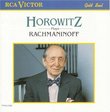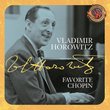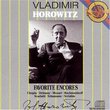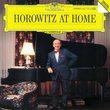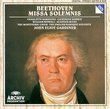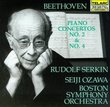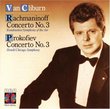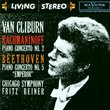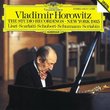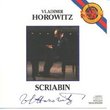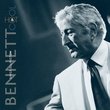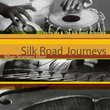| All Artists: Domenico Scarlatti, Wolfgang Amadeus Mozart, Sergey Rachmaninov, Alexander Scriabin, Franz Liszt, Frederic Chopin, Robert Schumann, Moritz Moszkowski, Vladimir Horowitz Title: Horowitz in Moscow Members Wishing: 0 Total Copies: 8 Label: Deutsche Grammophon Release Date: 10/25/1990 Genres: Dance & Electronic, Classical Styles: Ballets & Dances, Polkas, Forms & Genres, Short Forms, Sonatas, Historical Periods, Baroque (c.1600-1750), Classical (c.1770-1830), Modern, 20th, & 21st Century Number of Discs: 1 SwapaCD Credits: 1 Other Editions: Horowitz in Moscow UPC: 028941949929 |
Search - Domenico Scarlatti, Wolfgang Amadeus Mozart, Sergey Rachmaninov :: Horowitz in Moscow
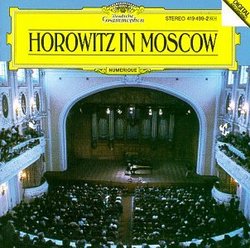 | Domenico Scarlatti, Wolfgang Amadeus Mozart, Sergey Rachmaninov Horowitz in Moscow Genres: Dance & Electronic, Classical
Along with the extramusical significance of the aged Horowitz's return to his erstwhile homeland, there's plenty here for seekers of the essential Horowitz. Perhaps his finest Mozart recording, the C-major Sonata, gets a f... more » ![header=[] body=[This CD is available to be requested as disc only.]](/images/attributes/disc.png?v=15401716) ![header=[] body=[This CD is available to be requested with the disc and back insert.]](/images/attributes/disc_back.png?v=15401716) ![header=[] body=[This CD is available to be requested with the disc and front insert.]](/images/attributes/disc_front.png?v=15401716) ![header=[] body=[This CD is available to be requested with the disc, front and back inserts.]](/images/attributes/disc_front_back.png?v=15401716) |
Larger Image |
CD DetailsSynopsis
Amazon.com essential recording Along with the extramusical significance of the aged Horowitz's return to his erstwhile homeland, there's plenty here for seekers of the essential Horowitz. Perhaps his finest Mozart recording, the C-major Sonata, gets a forward-moving reading distinguished by an Andante Cantabile movement that sings the music with the tonal splendor and command of line characteristic of the beloved bel canto singers of the past whom Horowitz looked to as musical models. The program's remainder is as formidable, and only a curmudgeon could fail to smile with delight at a favorite Horowitz encore, Rachmaninoff's Polka de W.R. --Dan Davis Similar CDs
Similarly Requested CDs |
CD ReviewsThe CD captures a historical event in music Joanna Daneman | Middletown, DE USA | 01/12/2003 (5 out of 5 stars) "There are famous historical events in music that resonate down through the centuries; the debut of Beethoven's Ninth Symphony, the premier performance of Stravinsky's Rite of Spring that resulted in a riot in Paris. The return of Russian-born Vladimir Horowitz to Moscow on Sunday, April 20, 1986 was such an event. After 60 years, one of the world's greatest pianists returned to play for his former homeland. It was big news. It still is.This cd is a recording of the live event, and opens with the Scarlatti E Major Sonata. Horowitz championed the music of Scarlatti and played it as no one else ever had, so this is a wonderful piece to begin with. But it's the Scriabin that I come back for, time and again, to listen to this CD. There are two etudes on this album (Op. 2#1 and Op. 8 #12.) All the romance, transient dissonance, moodiness and melodic richness of Scriabin are here, played by a pianist whose sound is like no one else's. Even if you aren't an afficionado of music history, this is an important CD as it is a live performance and has a really good representative selection of the Horowitz type of repertoire, from Rachmaninoff, Scriabin to Scarlatti, Liszt, Schumann (another Horowitz speciality) and even a Moszkowski showpiece. This is piano history at its pinnacle." Unforgettable... Hank Drake | Cleveland, OH United States | 11/11/2005 (5 out of 5 stars) "Vladimir Horowitz's April 20, 1986 Moscow recital has become so legendary that further comment seems superfluous. To say that this concert was an emotional experience is understatement. A lesser pianist might have wilted under the pressure, and many expected Horowitz would cancel. (He nearly did, after learning Vladimir Feltsman's piano had been vandalized following a concert at the American embassy. It took a phone call from President Reagan to persuade him to continue with the trip.) At 82, Horowitz seems ecstatically inspired here. He is in finer form here than he was in his 1985 recitals, where he occasionally sounded rusty. In the more bravura pieces, he uses a full dynamic range, which he mostly avoided at this time. Some of the performances, particularly the Liszt Sonetto, recall the fiery Horowitz of the 1940s. Yet, there is a balance and inner warmth that was largely missing in his earlier years. Certainly, the young Horowitz would not have delivered the sprightly, bouncy Scarlatti Sonata (superior to performances from 1951 and 1968), or the charming Mozart Sonata (far preferable to the drab version taped in his living room one year earlier). But it's with the Russian repertoire that Horowitz hits his stride, from Rachmaninoff's sunny G major Prelude to Scriabin's stormy D-sharp minor Etude - - where the bass notes ring as resoundingly as the bells of the Kremlin. The Chopin Mazurkas are offered with the bewitching melancholy that caused a German critic to rave over Horowitz ("Piano Culture Reawakened", read the 1926 headline). If the sparks of Moszkowski's Etincelles don't flicker as incandescently as they did in earlier days, Schumann's Traumerei sings with a new and heartfelt simplicity. For the record, not all of the performances on this CD come from the actual recital. The Scarlatti Sonata, first movement from the Mozart Sonata, Rachmaninoff G major Prelude and Polka, and Schubert-Liszt Soirées de Vienne came from the public rehearsal two days before the concert. However, no intersplicing was done within movements, so this is really how Horowitz played at that time. The sound is excellent, if a bit close. I heard Horowitz in concert in Boston this same year - - this is how he sounded. " Oh, God...5 stars would be simply unfair... Mauro Guzzo Decca | São Paulo, Brazil. | 06/06/2006 (5 out of 5 stars) "Upon hearing this record for the first time, I had to pinch myself to make sure I was actually listening to such an amazing, if not perfect display of talent and beauty. After having listened to it over and over again along the years, maybe more than 1000 times, I still find it hard to believe that the guy was even a human being. The only fair review for such a record would be a wordless one: nothing I can write or say would do justice to the rich, almost infinte world of emotions, thoughts and colors he's able to convey through his playing. 20 stars. ;-)"
|

 Track Listings (15) - Disc #1
Track Listings (15) - Disc #1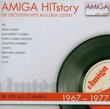

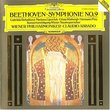
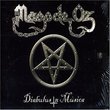
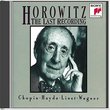
![Horowitz Live and Unedited [includes Bonus DVD]](https://nationalbookswap.com/cd//m/60/1660/6111660.jpg)
